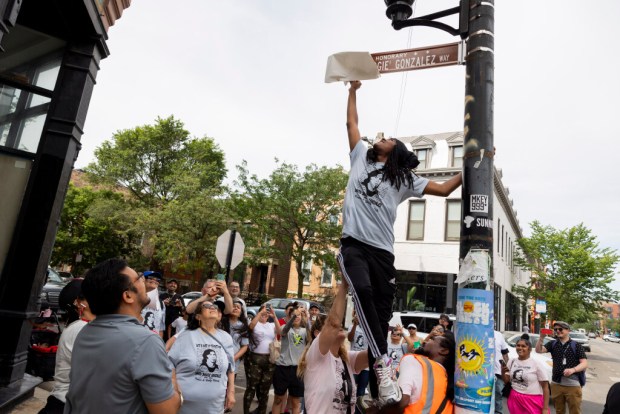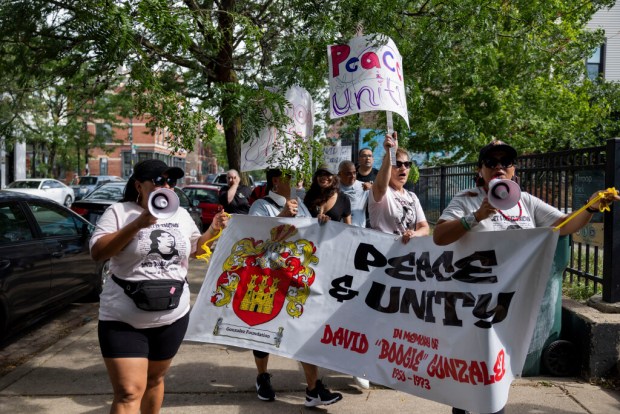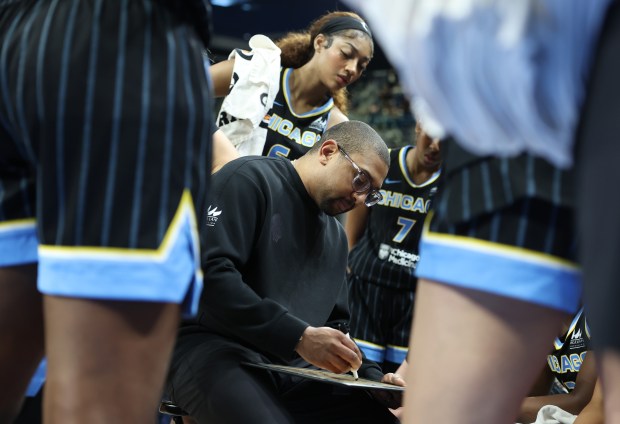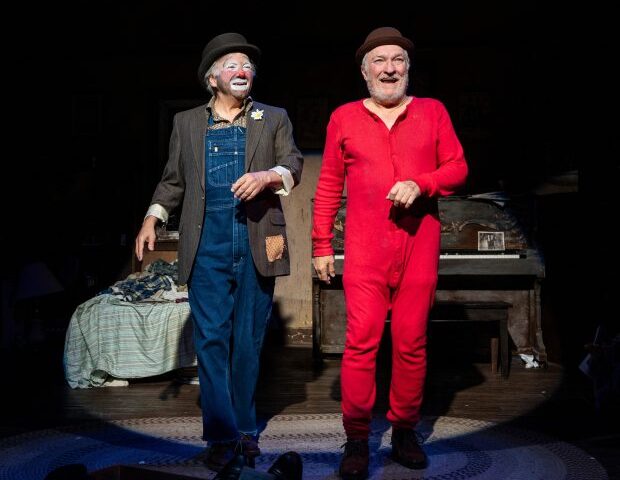The course of David “Boogie” Gonzalez’s life changed when, in 1971, he lost his older brother Jacob, a year home from Vietnam, to Pilsen’s gang violence.
“I guess that was his wake-up call,” remembered his sister, Annabelle Gonzalez-Falcon, 72. “That’s when he made up his mind he was going to change things.”
Boogie Gonzales, the second youngest of five siblings, had been in a street gang in his youth. But with his brother’s death, he dedicated himself to the Chicano Movement that at the time sought to unify Pilsen’s Mexican American community.
As an outreach worker with a Pilsen community center, he brokered hard-won truces between the neighborhood’s rival gangs, then called “clubs” — work now commonly known as violence interruption and funded with city support, here and elsewhere.
The work ultimately ended with his untimely death at age 23. Boogie Gonzalez was gunned down on June 19, 1973, in Pilsen’s Harrison Park, fatally shot, it was said at the time, while trying to ease gang tensions.
Fifty-one years later, his surviving family members and supporters gathered in that same park for a march in memory of his legacy.
Organized by the Gonzalez Foundation, a nonprofit started by his nieces, the march mirrored the one that took place immediately after his death, when dozens of people took to 18th Street in a rally for peace.
Saturday’s march echoed those calls for peace and unity and was part of a larger effort to make sure Gonzalez’s work continues and his legacy is remembered in a changing neighborhood, said one of his nieces, Victoria Guy.
“Boogie was one of the first de-escalators in Chicago,” said Guy, 42. “He was a pioneer. This is a deep-rooted history we need to be told.”
Around 30 people marched along 18th Street from Harrison Park to Throop Park at 18th and South Throop streets. They held signs that read “Boogie Lives!” and chanted, “For Boogie,” as they walked.
At Throop Park, across from a mural bearing his image, they joined 25th Ward Ald. Byron Sigcho-Lopez in unveiling an honorary street sign in his name.
“This is doing a little bit of justice to the sacrifice that Boogie Gonzales did for our community,” Sigcho-Lopez said, “and to know that his life, his legacy is important to us.”
Gonzalez and his family lived on 16th Street. His father started a tortilla company, then sold snacks and spices to stores and made pinatas.
“He was a good big brother,” Gonzalez-Falcon remembered. “He always stayed close to me.”
The night he was killed, Gonzalez-Falcon said she had just returned home from a laundromat when someone called to say her brother had been in an accident. A neighbor drove her and his girlfriend to the hospital. By then, her brother was already gone.
“It just went from there,” she said, her eyes welled with tears. “The hospital was so full of people that when I walked out of that room talking with the doctor, I went from arms to arms to arms all the way out of the hospital.”

The foundation’s next goals are to officially change the name of Throop Park to Boogie Park, organizers said, and to commission a new mural with his image on a wall facing the park — the foundation established a GoFundMe for a mural his family said will more closely resemble one done a few years after his death.
That mural, on the north side of 18th Street and Throop, depicted a towering Gonzalez with red paint across his chest. It faded over the years, according to a Chicago Sun-Times story on the family’s efforts to restore it.
The mural was eventually redone, his face painted smaller than the original and nestled between text identifying him as “the first to unite the clubs on 18th Street to bring about peace and unity.” To the left of his image, it notes his goal of uniting the neighborhood against “a system that was oppressing us.”
“I wanted to break the chains that keep our people down,” it reads. “For that I gave my life.”





